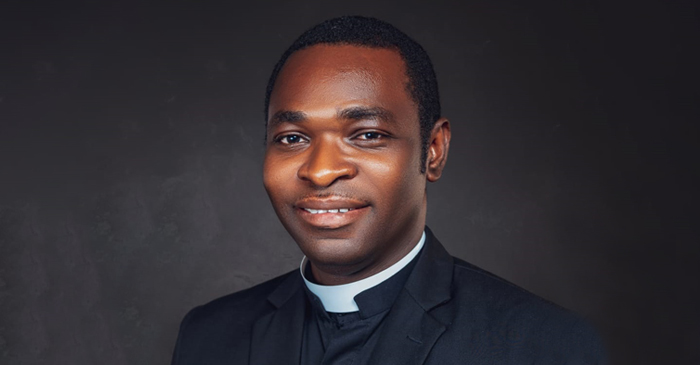During a conversation with a young man from a tertiary institution, I asked him what he would change or improve in his life if given the chance. He responded by saying that he would prioritise discipline. He expressed regret over past mistakes that could have been avoided had he possessed the wisdom he now has.
For many young individuals, life often revolves around immediate concerns such as food, clothing, friends, and shelter. These aspects take precedence, and it is natural for young people to prioritise them. This is not their fault, as youth is a stage of life that involves exploration and discovery. However, life also presents choices between right and wrong, truth and lies, good and bad. These choices are not exclusive to a particular age group or gender; they are inherent to one’s character and makeup.
Although young individuals may be perceived as naive, the decisions they make do not exempt them from life’s challenges. Every poor decision leaves a mark, either physically or mentally, and contributes to their learning and growth.
Let us reflect on the following scriptures from the New Living Translation:
- Ecclesiastes 11:9 – “Young people, it’s wonderful to be young. Enjoy every minute of it. Do everything you want to do; take it all in. But remember that you must give an account to God for everything you do.”
- Ecclesiastes 11:10 – “So refuse to worry, and keep your body healthy. But remember that youth, with a whole life before you, is meaningless.”
- Hebrews 12:11 – “No discipline seems pleasant at the time, but painful. Later on, however, it produces a harvest of righteousness and peace for those who have been trained by it.”
- 2 Timothy 1:7 – “For the Spirit God gave us does not make us timid, but gives us power, love, and self-discipline.”
Watching toddlers grow up right before our eyes is a wonderful experience for every parent. As time passes and they reach adulthood, managing companies, participating in board meetings, and making significant decisions, it is natural to recall incidents from their childhood. There were instances when they made mistakes that frustrated us to the point where we wanted to discipline them severely. However, we soon realised they were just kids, unaware of the world’s complexities. As parents blessed with multiple children, we entrust authority to the older ones to take care of the younger ones and guide them as they grow. But how much training and discipline do we invest in our children?
UNDERSTANDING DISCIPLINE
It seems that nature often takes its course in the training of children, with parents following suit. However, parents who take the time and effort to train their children with discipline reap greater rewards. I would, therefore, like to focus on the aspect of discipline in this training. To make a simple distinction between training and discipline, I would say that training may or may not involve pain, but discipline is always accompanied by pain.
Unfortunately, young people have often viewed discipline from the wrong perspective. Perhaps parents and guardians have misused the word or employed wrong motives and actions, leading young people to dislike discipline while desiring its fruit—success. However, it is important to understand the true meaning of discipline. The root word of discipline is “disciple,” which comes from the Latin word “discipulus,” meaning “student.” Therefore, discipline is derived from the Latin word “disciplina,” which means instruction, learning, and adhering to a set standard.
So, what is discipline? It is the act of studying, learning, training, and applying a system of standards. If the root word of discipline is “disciple,” then it implies that God has entrusted young people to parents to make them disciples, passing on their wisdom and ensuring the continuity of family blessings. Parents cannot exempt themselves from this duty and expect to raise well-rounded children. Neglecting this divine call to parent-child discipleship leads to societal and governmental intervention, where others mould young minds according to their own standards. While it may be challenging to gain the cooperation of young people, it is still imperative to make an effort.
Let us turn our attention to the scripture mentioned earlier, which states that it is wonderful to be young and encourages young people to enjoy every moment, do everything they want to do, and take it all in. Some scholars believe that King Solomon was around nineteen to twenty-five years old when he ascended the throne of Israel. Despite his youth, God blessed him with wisdom and an opportunity to fulfil his divine mandate. However, God’s blessings did not exempt Solomon from his natural weaknesses or provide him with an excuse to indulge in youthful passions and desires. Instead, they elevated him to fulfil his purpose.
Undoubtedly, young people are an amazing category of individuals. They possess admirable qualities, exude energy, and are enjoyable to be around. Youthful days come with valuable lessons, pleasure, freedom, mistakes, and experiences. This stage of life is full of adventure, experimentation, and fun. Some young people engage in deep exploration without considering the consequences, which can lead them into deep trouble. It is crucial for every individual to know their breaking point, where they need to say a firm no.
The scripture suggests that young people can “take it all in,” implying that there is room for naughtiness and seemingly getting away with it. However, life cannot be cheated, and it eventually pays back what has been invested in it. Being smart, strong, and modern does not guarantee salvation from the consequences of failing the test of discipline and losing control over one’s life. Solomon urged young people to be self-aware of their actions and become masters of their own lives, knowing that they will be held accountable to God for everything they do.
At first glance, the Scripture may seem to endorse everything young people do, but that is untrue. Solomon became king at a young age, and with that power came the freedom to do as he pleased. However, he also cautioned young people about the consequences that accompany such power. I believe that God granted Solomon rest from his father’s enemies, allowing him to enjoy the privileges that came with royalty. Yet, amidst these privileges, Solomon made foolish mistakes.
Young people are full of energy and have a desire to make the most of their lives. Imposing rules and regulations to mitigate their actions may feel like confining them to a small prison, and they will resist it with all their energy. Taming young people with their vast energy is challenging, but it is possible to harness that energy to shape society. Discipline involves instruction, learning, and applying a system of standards. This way of life requires sacrificing some aspects of youthful enjoyment, which are prone to mistakes but are still enjoyable to the youth. This is where discipline becomes difficult. Young individuals want to experience everything freely and without being dictated to. They want to showcase their abilities and earn respect. While some young people appreciate advice, the majority prefer to engage in discussions and be reasoned with, even when they are at fault.
Solomon added the latter part of the scripture to emphasise the fragile nature of the young person’s heart and their accountability to God. Therefore, they should be trained and instructed not through compulsion but through the spirit of obedience and free will. In verse 10, Solomon expressed that life is meaningless without adhering to strict disciplinary behaviours that positively impact their generation and the next. Solomon himself should have been the one referred to as the seed by the Messiah, but it was his father, David, who laid a solid foundation for him. Unfortunately, Solomon missed the mark. He surrounded himself with a thousand women who led him astray into idol worship. As a result, his kingdom was divided, and his great wisdom was squandered. Despite receiving twelve tribes from his father, Solomon handed over a kingdom on the verge of breaking apart to his son, Rehoboam, who mismanaged it, leading to its eventual division. In his old age, Solomon realised that if he had disciplined certain aspects of his life, his dynasty would have endured forever. Hence, he wrote, “Remember that you must give an account to God for everything you do.” Solomon’s journey and the wisdom bestowed upon him by God make him an ideal life coach for young people.
It is true that no discipline seems pleasant, as sometimes the one imparting discipline may appear freer than the one undergoing training. In such cases, doubts may arise about whether the disciplinarian has truly overcome the challenges they impose. Some may even believe that it is sheer wickedness and that the disciplinarian does not genuinely desire the success of the individual but instead seeks an opportunity to subject them to failure. When facing uncomfortable challenges, various ideas may come to mind. It is essential to clarify that I do not endorse wicked individuals who inflict physical, emotional, or psychological harm in the name of discipline. However, I support those who genuinely want people to succeed in life. Sometimes, it is the devil’s tactic to derail young people from the path of discipline, preventing them from undergoing the refining training they need.
Discipline occurs in phases and is time-bound. Once the time elapses, disciplining, training, correcting, or instructing a person becomes exceedingly difficult. To illustrate this concept further, imagine trying to straighten a young tree—it is much easier than straightening a fully grown tree. Allow me to shed more light on the different phases of discipline.
FIRST PHASE (DISCIPLINE)
“Train up a child in the way he should go, and when he is old he will not depart from it.” – Proverbs 22:6
Children are born into families, and parents are responsible for raising and training them. The scripture emphasises the vital role parents play in raising their children. To set a child on the right path in life, they must be taught to acknowledge the Lordship of Christ and walk with God to fulfil their divine purpose. Every family has a unique way, designed by God, to thrive. Some families start at the bottom while others find themselves at the top, but what truly matters is the training the child receives.
Young people often resist discipline because their vision is limited compared to their trainers. They may reject discipline in favour of a seemingly carefree life that is visible to them. However, laying a solid foundation for children starts with parents. Children need to understand their boundaries, how to conduct themselves, and how to treat others. These fundamental principles of discipline should be addressed by parents. Regardless of age, children should be aware of the consequences of their actions and decisions.
Parents must take full responsibility for making critical decisions that align with their children’s well-being, even if it causes them pain. They must teach and insist that their children consistently do what is right until it becomes ingrained in their character. Parents should also teach their children to say no with conviction. It is essential to recognise that young people value their freedom and may resist the discipline imposed upon them during their training. However, parents should never give up. As a parent, you possess the wisdom to guide your children through the obstacles they will encounter in life. Insist that they do the right things at the right time when you are satisfied with their progress, reward or appreciate them. During this phase, parents may not appear favourable in the eyes of their children undergoing training, but in the long run, their efforts will be crowned with success.
SECOND PHASE (SELF-DISCIPLINE)
“For the Spirit God gave us does not make us timid, but gives us power, love, and self-discipline.” – 2 Timothy 1:7
Self-discipline is the most crucial ingredient for a prosperous life, approved by both God and humanity. Self-discipline illuminates one’s character. In this phase, young adults build upon what they have learned in the first phase and strive to demonstrate excellent character. As young people grow and transition into adulthood, they leave their parents’ care to start their own lives. This is when they need to master self-discipline.
A person who is disciplined in life likely received intense training and values at home during their youth. They may not have appreciated it then but reap the benefits later. Self-discipline manifests in various aspects of life, ultimately achieved through the guidance of the Holy Spirit. To achieve holistic self-discipline, one must practice self-denial and goal-setting.
Successful individuals pay attention to details, plan their days to avoid wasting time on unproductive pursuits, keep their desires in check, and carry themselves with integrity. They practice what they preach and are open to receiving advice. While there is much more to be said about them, the simple truth is that they stand out as extraordinary among the ordinary. Such a life requires great sacrifices, commitments, and discipline. Young people who desire freedom and enjoyment during their youthful days may be unwilling to sacrifice their flamboyant lifestyle for the training that paves the way to success. Some may even attempt to have the best of both worlds. My advice to young people is that they cannot serve God and material wealth simultaneously while pleasing God, who has given them His Spirit. They need to make a choice regarding which path they want to take. Many young people today live lives of mediocrity, appearing bright on the outside but experiencing chaos within. If young people truly aspire to reach the top, they must embrace self-discipline.
THIRD PHASE (PRINCIPLED PERSON OR JUST PERSON)
This final phase is reserved for achievers and those who cannot be compromised. They may not enjoy strong relationships even among their peers, but society recognises them as the lifelines for the continued survival of their communities. The scripture affirms that God is and has no partiality in Him. If young people aim to reach this goal and become like God in their actions and speech, their generation will surpass the glory of the former days.
CONCLUSION
The surge of indiscipline in society serves as a testament that something is amiss and that immediate action is necessary. Let us start by raising children well at home and praying for our brothers and sisters to remember Solomon’s words that all will give an account on the day of judgment. Love discipline, love success.
Written by Pastor Joseph Zoot





